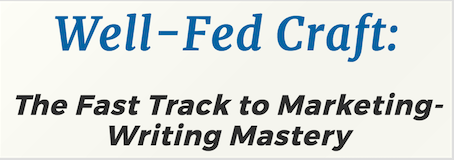Apologies for the long hiatus from the blog. As many of you know, I went on an adventure for the first three months of this year (see the photo albums linked from the Appetizer course in the March issue of The Well-Fed E-PUB), and slowly getting back into the swing of things. Thanks for coming back!
**************************
So, I’m in the home stretch (the good news) of a dental implant procedure (the bad news). Thankfully, I feel like I’m in incredibly good hands with my dentist. She is so competent and knowledgeable, and does such a great job of explaining what she’s doing, making me comfortable during the process, and following up by phone after every step.
It’s a roughly 4+-month process, that began with an extraction of a tooth followed by the insertion of a titanium post screwed into the jawline. Actual powdered bone material is packed into the opening, and over the next four months, it assimilates into the jawbone, and further anchors the post. Finally, a prosthetic tooth attached to another screw, similarly, is screwed into the post.
(NOTE: As grisly and wince-inducing as the above description no doubt sounds, the whole process is basically a lot of sound and water, but no pain—except, of course, when it comes time to pay).
Consider the skill and expertise required to do the job at all, much less the masterful job she does. She is so good at what she does, and this process demands such a high level of expertise, that I’ve shelled out her non-trivial fee unhesitatingly, never considering for a second trying to get it done on the cheap. Just not worth it.
On the continuum of professional services—with those services you might consider “cheaping out†on, or even doing yourself, on one end; and those you’d never consider getting done by anyone but the best practitioner one can find, on the other—her services are obviously ensconced in the latter category.
Then, there are services that companies and individuals routinely put in the former category (i.e., those you might consider doing yourself), but don’t belong there in any way shape or form. And of course, professional copywriting services are one of them.
It’s Easy to Write, Right?
No mystery why this happens. After all, to the untrained eye, what’s so difficult about writing? It’s just stringing words together to form sentences that convey a certain message, right? Any educated, reasonably literate person can do it, yes? What’s so hard about it? Oh my, let us count the ways…
And because of the pervasiveness of this tragically misguided perception about the craft of marketing writing, it has the strange effect of actually convincing many writers of its veracity.
How else to explain why so many exceptionally good copywriters are insecure about their skills (not getting how so few can do what they do well), and lack the confidence to insist upon a professional wage—equivalent to the fees earned by other “professionals”?
Bad Writing Helps No One
Of course, that widely held misconception (i.e., of how “easy†writing is) doesn’t lose much power when so many mediocre writers flock to the field and keep cranking out pretty convincing evidence—for crappy wages—that writing actually is pretty easy.
After all, say the clients who pay those crappy wages, it must be easy, given how little we had to pay for it. I could have done just as good a job, but I don’t have the time. And that makes it tougher for the truly talented commercial writers (a.k.a. marketing writers) to convince many clients to pay those professional wages.
(NOTE: I’m not talking here about simple article-writing skills. If that’s all a client needs, then any number of thousands of writers out there have the basic skills to do an adequate job, and for pretty cheaply. I’m referring here to the more challenging marketing-copywriting skills held by far fewer people.)
They Don’t Know What They Don’t Know
At the heart of that challenge is the fact that those same clients have no idea what really good marketing writing looks like. What they see from the bargain-basement writers becomes their baseline perception, not only of what “good writing†should cost, but more importantly, what “good writing†is.
Hence, it becomes our job to educate them as to the difference it can make. No, if we have access to enough prospects who already understand the value of good marketing writing, and are willing to pay well for it, we don’t need to waste our time educating the unconvinced. But if those “enlightened†clients are in short supply in our prospecting pool, then educating may be in order (or, expanding one’s pool…).
Fact is, solid marketing copywriting takes a LOT of skill and expertise. It’s not easy, and by no stretch of the imagination can just anyone do it (tell you something you don’t know, right?). And if you are one of The Good Ones, I daresay it’s not a stretch to compare the caliber of your skills, in their own way, to those of a good dentist.
**************************
Have you wrestled with that typical writer insecurity that plagues so many of us?
Was there a moment (perhaps, a particular client/job) that had you realize you were delivering far more value to your client than just a “freelance writer†would?
Have you had clients contrast their experience working with you, with one working with a freelancer with little marketing background?
OR, have you had a client been hesitant to hire you, thanks to a past “bad-writer” experience?
Any other comments or observations?

Speaking of good writing, I’ll be re-launching Well-Fed Craft—my popular program on how to actually write the most common commercial writing projects—on June 26. For all the details, go here.
Want to be a guest blogger on TWFW Blog? I welcome your contribution to the Well-Fed writing community! Check out the guidelines here.
